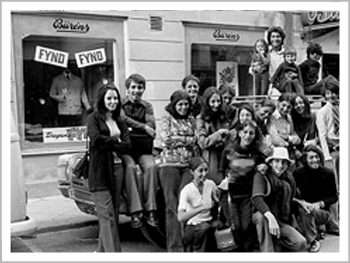By Steve Rhodes
“Steve Coll’s riveting new book not only gives us the most psychologically detailed portrait of the brutal 9/11 mastermind yet, but in telling the epic story of Osama bin Laden’s extended family, it also reveals the crucial role that his relatives and their relationship with the royal house of Saud played in shaping his thinking, his ambitions, his technological expertise and his tactics,” Michiko Kakutani writes in “The Bricklayer’s Sons: The Family That Spawned 9/11.”
“It is a book that possesses the novelistic energy of a rags-to-riches family epic, following its sprawling cast of characters as they travel from Mecca and Medina to Las Vegas and Disney World, and yet, at the same time, it is a book that, in tracing the connections between the public and the private, the political and the personal, stands as a substantive bookend to Mr. Coll’s Pulitzer-Prize-winning 2004 book, Ghost Wars: The Secret History of the C.I.A., Afghanistan, and Bin Laden, from the Soviet Invasion to Sept. 10, 2001.”
Just looking at the photo below of the bin Laden family makes me want to read this book; it isn’t useful to think of Osama bin Laden as a demonic caricature instead of an actual human who was spawned from, you know, other humans. Doing so doesn’t make him less despicable and murderous to us.

“As for Osama bin Laden, Mr. Coll, like Mr. Wright in The Looming Tower, suggests that the Qaeda founder’s turn to international war against the United States was not inevitable,” Kakutani writes.
Indeed, it seems a combination of Bush-like Oedipal issues, conflict with the Saudi royal family, money problems, a divorce, and a son who left him isolated in his new Sudan home when he returned to Saudi Arabia coalesced in anger he eventually directed toward America. Not so the rest of his family.
“While he careered toward violence, other members of his family moved to strengthen their ties with the West,” Kakutani writes. “There were family investments in enterprises ranging from Iridium, a satellite communications network, to the Hard Rock Cafe franchise in the Middle East.”
*
The Washington Post – where Coll was once managing editor – hosted a online discussion with Coll on Tuesday as part of its Book World Live series. You can see the transcript here.
*
Kill the Cliché

The death of Bambi’s mother is often considered “poignant.”
“Last week, the fine folks at Paper Cuts, the NY Times’ book blog, came up with the seven deadliest words of book reviewing: poignant, compelling, intriguing, eschew, craft, muse and lyrical,” Carolyn Kellogg writes in the Los Angeles Times’s Book Review.
“While I’m sure that all of these appear far too often in book reviews, I’m not sure that makes them deathly clichés. Take ‘eschew’ – not a bad word, just too sneezy for spoken conversation – it looks nice on the page, and is more, um, lyrical than ‘avoid.’ Simply seeing ‘eschew’ in a review would not make me toss it aside.
But then there’s ‘poignant.’ Meaning emotional and affecting, to me, ‘poignant’ is a flag raised only by those prone to cheap sentimentality. Any reviewer using ‘poignant’ becomes, in my eyes, immediately suspect. Books (films, what have you) described as ‘poignant’ are to be avoided. ‘Poignant,’ in addition to being a descriptor of things I dislike, is an ugly word. Poignant. Blech.”
Readers?
Baseball Biology
Johan Santana, the best pitcher in the major leagues, made it to America on the shoulders of others. Player One in the stream of Venezuelans to the major leagues was Andres Reiner – now “a small, stooped 72-year-old Hungarian immigrant with a balding pate and wire-rimmed glasses,” writes David Baxter in his Los Angeles Times review of Venezuelan Bust, Baseball Boom.
“During the 1970s and early ’80s, oil-rich Venezuela was the wealthiest country in Latin America. More than 75 percent of the population was middle class and rising, thanks in part to a government that spent lavishly, sending thousands of students abroad to study.
“As a result, baseball was considered a game, not a career, and parents weren’t beyond hiding a son’s glove should he ever get the two confused. The major leagues paid the country little notice.
“Then came Black Friday, Feb. 18, 1983 – the bust in the book’s subtitle – when a steep drop in oil prices led to a devaluation of the bolivar. Before long, more than half of all Venezuelans were considered poor and baseball suddenly was seen as a way to escape poverty, just as it is in the Dominican Republic, Nicaragua, Cuba and elsewhere in Latin America.”
For Carlos Zambrano, too. He was born in Puerto Cabello.
Dickweed Alert
“I will say this on public record: James Collins, you are a dickweed, and anyone who likes you deserves you. If we were seven and we were on the playground together, I would throw sand in your face and give you a wedgie. You and your ilk are the reason nobody cares about literary fiction. That’s right, it’s all your fault.”
Find out what has Eugenia at Literago so royally (and rightly so) disgusted.
Posted on April 3, 2008


